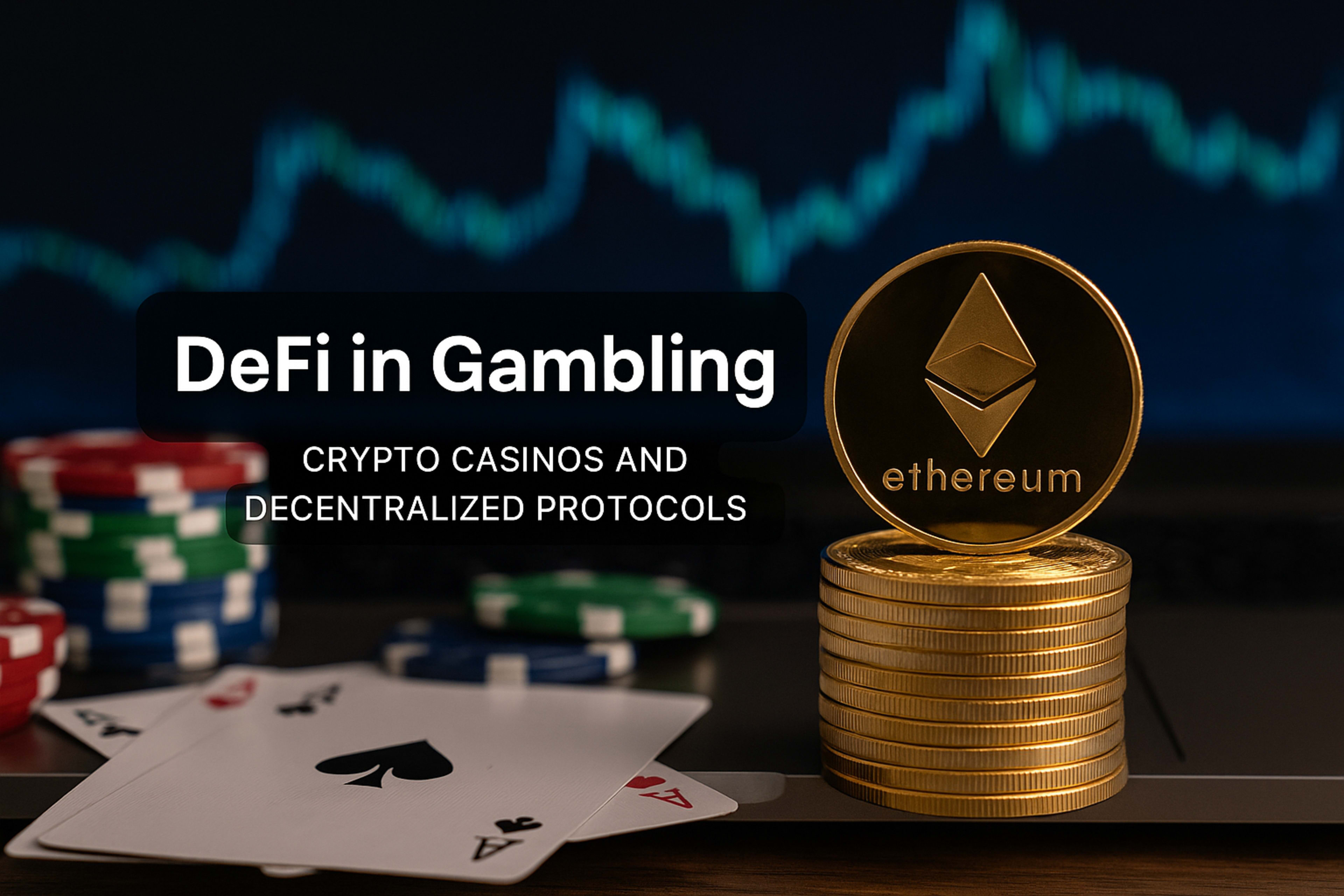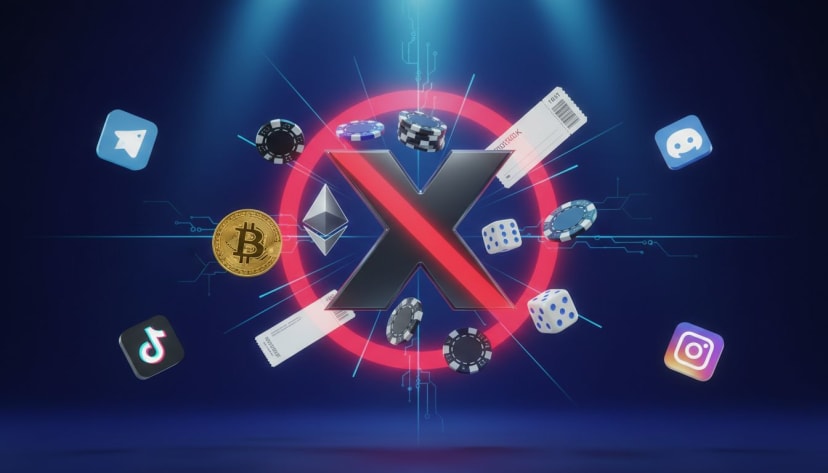DeFi in Gambling: How Decentralized Protocols Could Reshape Crypto Casinos

The crypto gambling industry has always been an experiment in blending technology with chance. From Bitcoin dice games to massive Ethereum-based casino platforms, every stage of evolution has pushed boundaries on fairness, transparency, and accessibility. But decentralized finance (DeFi) introduces something entirely new — a financial infrastructure that could strip away intermediaries and turn casinos into autonomous ecosystems governed by code and community.
DeFi’s influence isn’t theoretical anymore. Its protocols already power non-custodial trading, lending, and liquidity management across billions in locked value. When applied to gambling, those same principles could eliminate the last remaining barriers of trust. Imagine a casino where you never deposit funds into an operator’s wallet, where payouts are executed automatically, and where every rule is written into smart contracts visible to everyone. That’s the essence of a DeFi casino — transparent, autonomous, and community-owned.
From Crypto Casinos to DeFi Protocols
Traditional crypto casinos, for all their innovation, still rely on centralized mechanisms. They may accept Bitcoin or Ethereum, but your deposits usually sit in the platform’s controlled wallet. Withdrawals depend on internal processes, and disputes still pass through human moderators or regulatory intermediaries. The blockchain element mostly ends at the transaction level.
DeFi casinos, by contrast, extend decentralization to the core of the system. The games, payouts, liquidity, and even governance are all handled through smart contracts — self-executing code deployed on public blockchains. Once these contracts are live, they operate independently, without intervention from an owner or admin. Players interact directly with these contracts through their crypto wallets, maintaining complete custody over their funds from start to finish.
This shift transforms gambling from a service operated by a company into a protocol maintained by a network. It’s the same leap that decentralized exchanges made in finance — replacing middlemen with transparent, verifiable automation.
Smart Contracts and the Automation of Trust
The foundation of DeFi gambling is the smart contract, a piece of code that replaces traditional casino infrastructure. These contracts hold funds, determine outcomes, and distribute payouts automatically once game conditions are met.
Let’s take roulette as an example. Instead of depositing tokens into a casino account, a player interacts directly with a smart contract representing the game. The contract uses an external random number generator verified by an oracle — such as Chainlink VRF — to ensure unpredictability. Once the spin is complete, the outcome and payout are written permanently on-chain. No withdrawal requests. No processing times. No human interference.
This automation replaces reputation-based trust with mathematical certainty. Every bet, win, and loss is visible on the blockchain, meaning anyone can verify that the game is fair and that the odds behave exactly as coded. The transparency once promised by “provably fair” systems now becomes absolute, enforced by open-source logic rather than marketing claims.
Liquidity Pools and Community-Backed House Funds
DeFi casinos also rethink how gambling platforms handle money behind the scenes. Traditionally, the casino acts as the “house,” using its own reserves to cover payouts. In a decentralized model, that role shifts to liquidity providers (LPs) — users who stake assets into shared pools that power the casino’s bankroll.
When players bet and lose, the pool profits; when they win, payouts come directly from that same shared liquidity. LPs earn a percentage of total wagering volume as yield, similar to how DeFi users earn fees for providing liquidity on decentralized exchanges. This creates a system where the casino’s profitability is shared among participants, not a centralized operator.
The economic implications are profound. Players, investors, and developers can all occupy overlapping roles in the same ecosystem. A user could be a gambler one day and a liquidity provider the next, profiting from the same system they play within. This interdependence builds both financial resilience and community alignment — the casino thrives only when the network does.
Ownership, Governance, and Player Power
Another major distinction between DeFi casinos and their predecessors is the concept of decentralized governance. Most DeFi projects operate using tokens that grant voting rights to holders. Applied to gambling, this means players and liquidity providers can directly influence how the platform evolves — from setting house edges and bonus structures to introducing new games or changing fee models.
These tokens often carry additional utility, such as staking rewards, reduced fees, or exclusive access to new releases. More importantly, they transform players from customers into stakeholders. Decisions that would typically be made in a boardroom are instead made through community votes, creating a sense of shared ownership and accountability.
The DAO (Decentralized Autonomous Organization) structure naturally complements this system. A DAO-run casino could theoretically operate without a central authority at all, distributing profits to token holders based on collective governance outcomes. It’s not far-fetched to imagine a future where the “house” itself becomes a collective of its own players.
Fairness and Transparency Reimagined
Fairness has always been a marketing pillar for crypto casinos, but even “provably fair” systems require a level of trust in the operator’s backend. DeFi protocols make that promise verifiable. Every function — from random number generation to payout distribution — is recorded publicly on the blockchain.
This means the community doesn’t have to rely on third-party auditors or platform claims to know a game is legitimate. They can see the logic themselves, trace outcomes, and even fork the code if they believe improvements can be made. Such openness drastically reduces the potential for manipulation, hidden fees, or biased odds.
That said, this new transparency introduces new responsibilities. Players must understand how to read contracts and interact safely with decentralized applications. Code replaces customer support, and responsibility becomes part of the experience.
The Economics of DeFi Gambling
The integration of decentralized finance brings new dimensions to the casino economy. Instead of profits flowing vertically to an operator, they circulate horizontally through the ecosystem.
A DeFi casino’s house edge might fund token buybacks, liquidity incentives, or community rewards. This creates a circular economic model where every transaction supports the protocol’s health. It’s similar to staking or yield farming — the more players interact, the more value circulates within the system.
Operational costs are minimal because everything runs on smart contracts, which drastically reduces overhead. There are no payment processors, account systems, or customer verification databases to maintain. That efficiency allows casinos to offer higher return-to-player (RTP) ratios or lower fees while still remaining profitable.
However, the same decentralization that makes DeFi efficient also introduces volatility. Token prices fluctuate, gas fees vary, and liquidity can dry up in extreme conditions. A well-designed token economy and sustainable governance are therefore essential for stability.
Risks and Security Considerations
DeFi gambling doesn’t eliminate risk — it redistributes it. The system’s integrity depends entirely on the quality of its code. A single flaw in a smart contract could result in drained liquidity pools or frozen funds. For this reason, reputable projects rely on independent audits, continuous code reviews, and open-source verification to maintain trust.
Another concern is oracle reliability. Randomness in blockchain environments often requires external data feeds, which can be manipulated if not properly secured. Ensuring robust oracle systems is key to preserving fairness and unpredictability.
Regulatory uncertainty adds another layer of complexity. Since DeFi casinos typically lack a central operator or legal entity, traditional gambling laws have limited reach. This creates potential conflicts in regions where gambling is tightly controlled. The likely outcome will be a hybrid structure — decentralized backends with compliant, region-specific front ends that satisfy evolving legal frameworks.
The Bigger Picture: Why DeFi Changes the Game
At its core, DeFi challenges the idea that players must trust a middleman to manage their money. It gives users direct control over their funds, guarantees transparent odds, and introduces a new way to share in the success of the platform itself.
It also bridges two worlds that have traditionally been separate — finance and gaming. Players become investors, investors become participants, and the line between speculation and entertainment fades into a shared economy of risk and reward.
As blockchain scalability improves and regulatory clarity grows, DeFi casinos could evolve from niche experiments to mainstream platforms that redefine online gambling’s social and financial architecture. The shift won’t happen overnight, but its direction is clear: from centralized entertainment to decentralized ecosystems, where fairness, security, and profit coexist through code.
FAQ
What’s the main benefit of DeFi in gambling?
DeFi eliminates middlemen by automating everything through smart contracts, giving players full control and transparency over funds and outcomes.
How do liquidity pools work in a DeFi casino?
Liquidity providers stake assets that act as the casino’s bankroll, earning a share of profits from player activity while supporting instant payouts.
Are DeFi casinos safer than regular crypto casinos?
They can be safer in terms of transparency and custody, but their safety depends heavily on the quality and auditing of their smart contracts.
Can DeFi casinos be regulated?
It’s challenging since they operate autonomously, but hybrid models with decentralized backends and regulated interfaces are emerging.
Will DeFi replace traditional crypto casinos?
Not entirely. Both will likely coexist, with DeFi casinos appealing to players who value openness, anonymity, and decentralized ownership.








